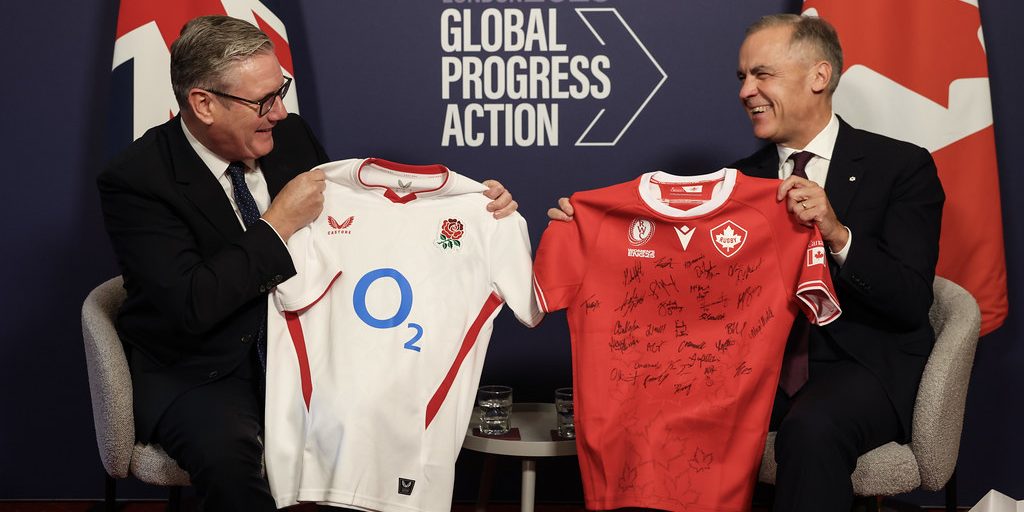Now is not the time for Zoom diplomacy

Prime Minister Mark Carney is back home this week after spending a couple of days in the United Kingdom where he met with a gaggle of world leaders in his ongoing quest to have Canada branch out from its overreliance on the United States.
His four-day trip abroad didn’t conclude with any deals signed or agreements made, but the prime minister says that’s not the point.
According to The Canadian Press, Carney told reporters his travel “was about telling the investors about major infrastructure projects being built in Canada and the ways the country is looking to court more global capital.”
“The discussions I had in New York, and here, are discussions about the overall investment climate, not specific transactions or investment deals,” Carney said, according to CP.
The frequency of Carney’s travel overseas—he’s made 13 foreign visits since his swearing in this past March—and the apparent “lack” of tangibles those trips have generated has been fodder for the opposition Conservatives.
In a Sept. 28 post on X, Conservative Leader Pierre Poilievre had this to say: “I’d be the first to cheer if Carney’s globetrotting opened new markets. But the more he travels, the more markets shut & tariffs rise:
1. Carney met with Chinese leaders = new tariffs on our farmers & fisherman;
2. Carney texts with President Trump = more concessions, existing U.S. tariffs double & elbows lost;
3. Two glamorous trips to the UK = British blockade on [Canadian] beef remains & no free trade deal.”
The notion that Poilievre would be the “first” to applaud any move Carney makes is suspect, but what’s more believable is that he’s tapped into a segment of the population who are looking for results from the Carney government’s promise to move quickly.
However, diplomacy and international negotiations don’t move at the same speed as politicking. People from other countries want Canada’s attention and money, and they want both of those things to be sustained. Relationship building comes from frequent and consistent interaction—just look back to the complaints about how difficult some foreign emissaries found it to connect to the Trudeau government once initial contact was made.
Critics say Carney’s trips are photo ops, and that the PM should just have a phone call. That’s definitely an option in some cases. But the government clamped down on work-from-home provisions for public servants, so why should Carney be expected to sit in his office on Zoom calls with world leaders?
Plus, face time is still important. If we’re all agreed that we have to move away from the U.S., then sometimes that will involve physically being away to forge those bonds.
Note that the same critics complain and point fingers when Carney isn’t in the room when everyone else gathers, and say he’s failing and being ignored. So, it’s a rock-and-a-hard-place situation. But if it eventually bears fruit, then Carney and Canada will take the win. If not, voters will respond accordingly.
The Hill Times





 LICENSING
LICENSING PODCAST
PODCAST ALERTS
ALERTS


